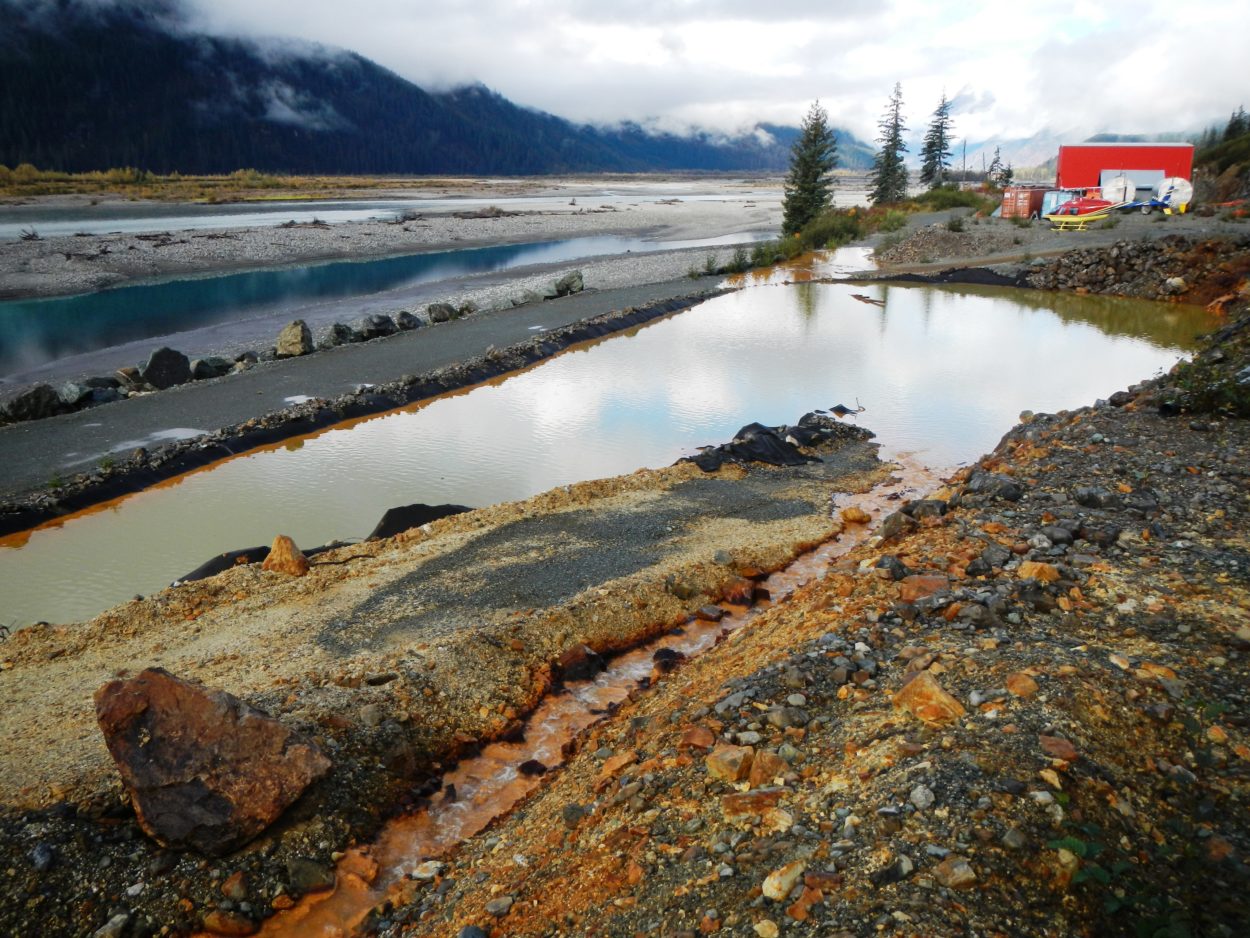
Efforts at cleaning up a long closed Canadian mine upstream from Southeast Alaska’s largest salmon producing system has taken another step forward. That’s following a judge’s order ending the receivership of bankrupt owners Chieftain Metals.
The court ruling eases the path for the province of British Columbia to start cleaning up the Tulsequah Chief Mine. The former metals mine about 10 miles upstream from the border hasn’t been productive since the 1950s. But for decades it’s leeched acidic runoff into a watershed that drains into the salmon-rich Taku River.
The province of B.C. announced a nearly $37 million cleanup plan earlier this year. But its Toronto-based creditors have been trying to find a new buyer to recoup the nearly $47 million it says it’s owed by Chieftain Metals which unsuccessfully attempted to restart mining for copper, lead, zinc, silver and gold.
West Face Capital asked to be discharged from responsibility of paying legal bills and other costs while at the same time having unlimited time to resell the mine. The province objected, saying Canadian taxpayers shouldn’t foot the cleanup costs to enrich private investors.
The Ontario Superior Court of Justice ruled in B.C.’s favor. But it allowed a two-year window for the Toronto investment firm to come back to the court if it finds a new buyer to take over the mine.
“There are environmental concerns with the project which will have to be addressed,” Chief Justice Geoffrey B. Morawetz wrote in his October 8 decision.
Tribes and conservationists on both sides of the border welcome the judge’s ruling. The Taku River Tlingit First Nation has been seeking the mine’s cleanup without delay.
In Alaska, environmental groups have urged state officials to prod the province into taking concrete steps.
“Hopefully B.C. can move aggressively towards cleanup and not look at this two-year process as some kind of delay or lull,” Chris Zimmer of Rivers Without Borders told CoastAlaska.
Some first steps to getting the defunct mine cleaned up began this summer.
In a statement, B.C.’s mining ministry says it plans to resume designing a long-term monitoring plan and conduct more surveys next spring. It added it may install a temporary water treatment plant to stop pollution from flowing into the Tulsequah River.
“The ministry will continue to review and pursue relevant legislative options available to the province in the intervening period,” the agency wrote on its website.
A ministry spokesperson declined to elaborate.












